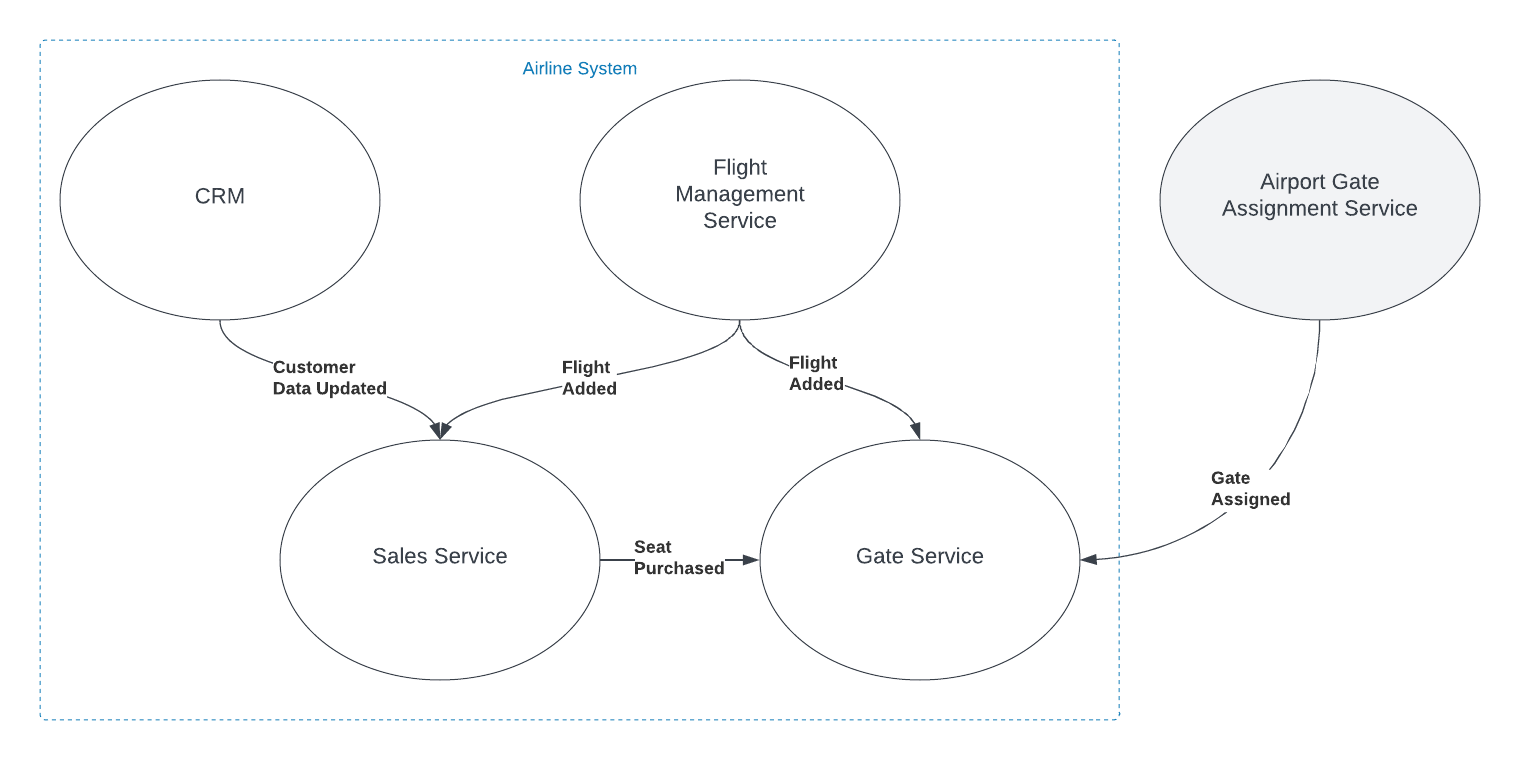Objects with the Same Name in Different Bounded Contexts
Posted by bsstahl on 2023-10-29 and Filed Under: development
Imagine you're working with a Flight entity within an airline management system. This object exists in at least two (probably more) distinct execution spaces or 'bounded contexts': the 'passenger pre-purchase' context, handled by the sales service, and the 'gate agent' context, managed by the Gate service.
In the 'passenger pre-purchase' context, the 'Flight' object might encapsulate attributes like ticket price and seat availability and have behaviors such as 'purchase'. In contrast, the 'gate agent' context might focus on details like gate number and boarding status, and have behaviors like 'check-in crew member' and 'check-in passenger'.
Some questions often arise in this situation: Should we create a special translation between the flight entities in these two contexts? Should we include the 'Flight' object in a Shared Kernel to avoid duplication, adhering to the DRY (Don't Repeat Yourself) principle?
My default stance is to treat objects with the same name in different bounded contexts as distinct entities. I advocate for each context to have the autonomy to define and operate on its own objects, without the need for translation or linking. This approach aligns with the principle of low coupling, which suggests that components should be as independent as possible.

In the simplified example shown in the graphic, both the Sales and Gate services need to know when a new flight is created so they can start capturing relevant information about that flight. There is nothing special about the relationship however. The fact that the object has the same name, and in some ways represents an equivalent concept, is immaterial to those subsystems. The domain events are captured and acted on in the same way as they would be if the object did not have the same name.
You can think about it as analogous to a relational database where there are two tables that have columns with the same names. The two columns may represent the same or similar concepts, but unless there are referential integrity rules in place to force them to be the same value, they are actually distinct and should be treated as such.
I do recognize that there are likely to be situations where a Shared Kernel can be beneficial. If the 'Flight' object has common attributes and behaviors that are stable and unlikely to change, including it in the Shared Kernel could reduce duplication without increasing coupling to an unnaceptable degree, especially if there is only a single team developing and maintaining both contexts. I have found however, that this is rarely the case, especially since, in many large and/or growing organizations, team construction and application ownership can easily change. Managing shared entities across multiple teams usually ends up with one of the teams having to wait for the other, hurting agility. I have found it very rare in my experience that the added complexity of an object in the Shared Kernel is worth the little bit of duplicated code that is removed, when that object is not viewed identically across the entire domain.
Ultimately, the decision to link objects across bounded contexts or include them in a Shared Kernel should be based on a deep understanding of the domain and the specific requirements and constraints of the project. If it isn't clear that an entity is seen identically across the entirety of a domain, distinct views of that object should be represented separately inside their appropriate bounded contexts. If you are struggling with this type of question, I reccommend Event Storming to help gain the needed understanding of the domain.
 Barry S. Stahl (he/him/his) - Barry is a .NET Software Engineer who has been creating business solutions for enterprise customers for more than 35 years. Barry is also an Election Integrity Activist, baseball and hockey fan, husband of one genius and father of another, and a 40 year resident of Phoenix Arizona USA. When Barry is not traveling around the world to speak at Conferences, Code Camps and User Groups or to participate in GiveCamp events, he spends his days as a Solution Architect for Carvana in Tempe AZ and his nights thinking about the next AZGiveCamp event where software creators come together to build websites and apps for some great non-profit organizations.
Barry S. Stahl (he/him/his) - Barry is a .NET Software Engineer who has been creating business solutions for enterprise customers for more than 35 years. Barry is also an Election Integrity Activist, baseball and hockey fan, husband of one genius and father of another, and a 40 year resident of Phoenix Arizona USA. When Barry is not traveling around the world to speak at Conferences, Code Camps and User Groups or to participate in GiveCamp events, he spends his days as a Solution Architect for Carvana in Tempe AZ and his nights thinking about the next AZGiveCamp event where software creators come together to build websites and apps for some great non-profit organizations.